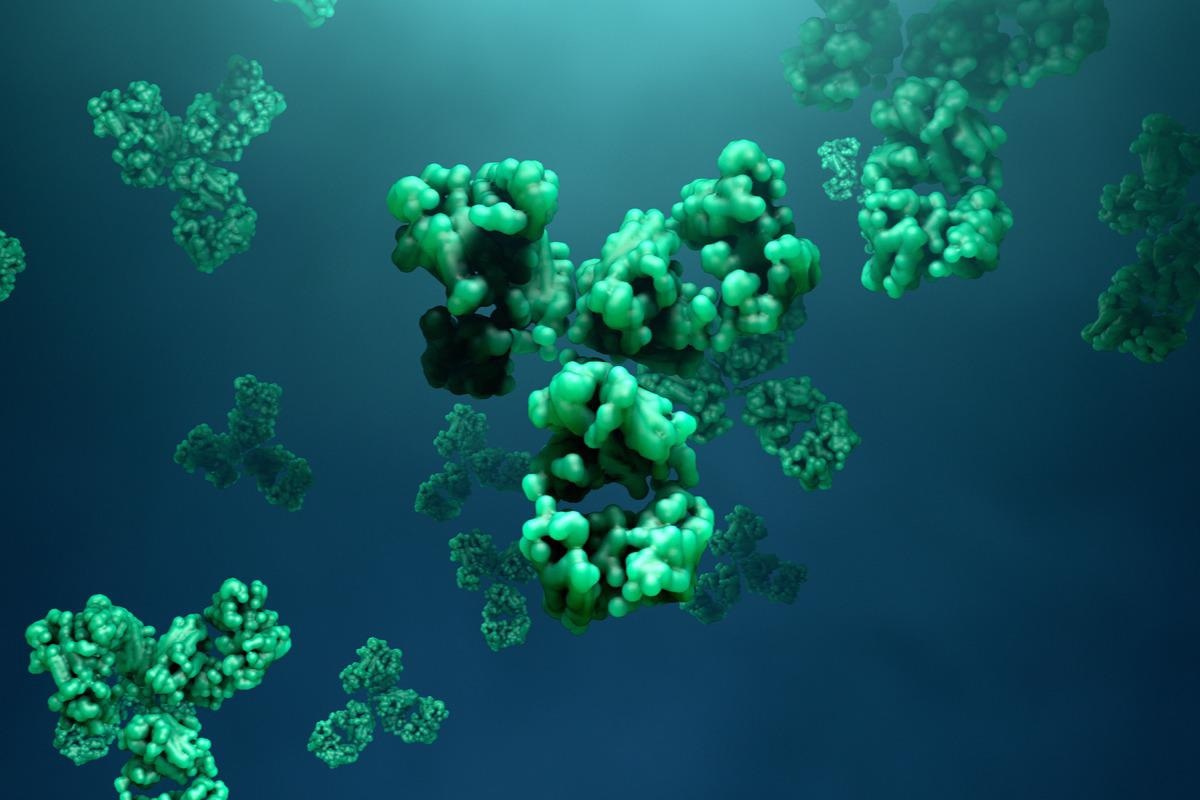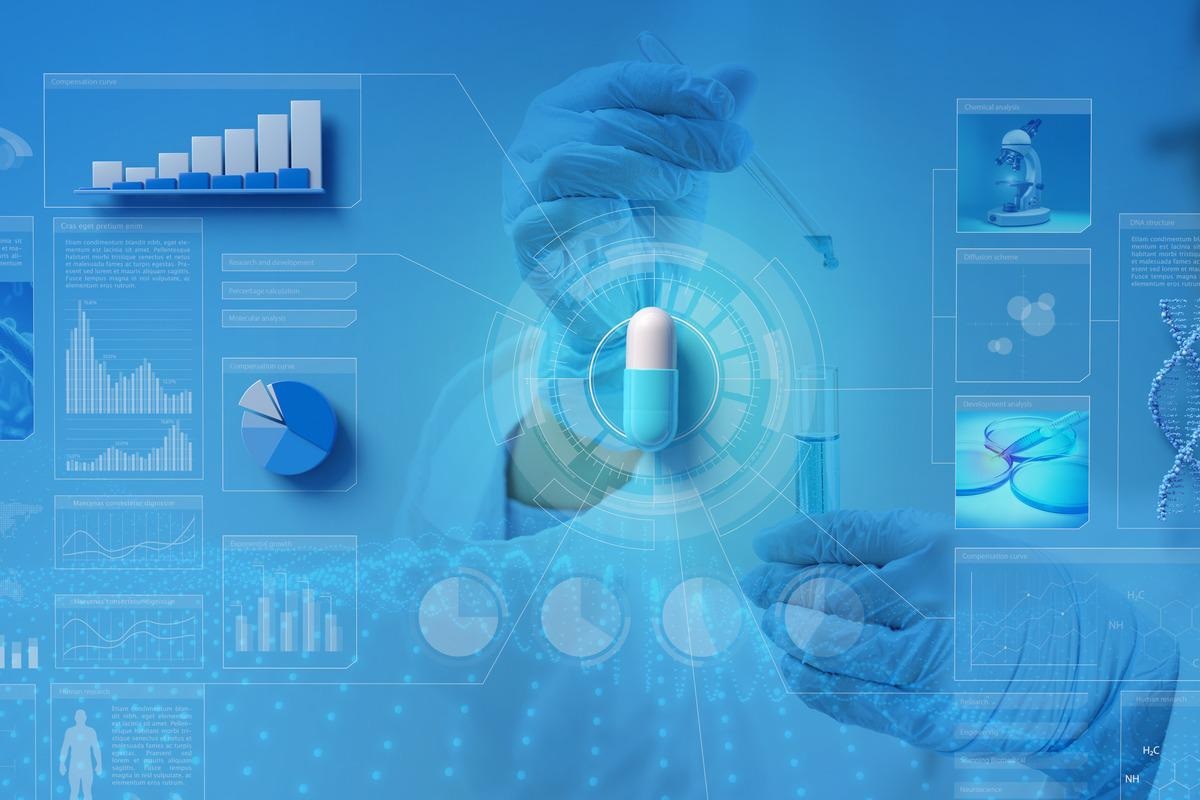As part of our SLAS Europe 2022 coverage, we speak to Andrew LeBeau, Associate Vice President for Product Integrations at Dotmatics, about the importance of managing data within the life sciences and Dotmatic's Biology Solution for Antibody Discovery.
Please can you introduce yourself and tell us about your role at Dotmatics?
I am Associate Vice President for Product Integrations at Dotmatics. I joined Dotmatics in 2017 in a biologics product marketing role and have more than 20 years of experience in the life sciences industry.
Following the merger between Insightful Science and Dotmatics, I now lead both Product Integrations and Solutions Development Teams. The Product Integrations Team has a broad remit to define the strategy for and then implement the orchestration of products across the full company portfolio to ensure seamless support of data-driven workflows.
Solutions Development Team utilizes the knowledge and experience that Dotmatics has gained over the last 15+ years, along with the product integrations that are coming online on a regular basis, to build industry-best-practices informatics solutions to the most common workflows within drug discovery research.
Dotmatics aims to harmonize science and data. How important do you believe data is to science and new breakthroughs?
Data is the currency of science and what allows us to make breakthroughs. There is no science without data. Without data, you have only opinions and conjecture. The creation and analysis of data allow hypotheses to be tested and evaluated – i.e., the fundamental scientific process. However, scientists have often found that “data science” has not matured to the extent of its older sibling, “science data,” which has no shortage of information and insight to share.

Image Credit: wanpatsorn/Shutterstock.com
We believe it is so important that we can deliver for scientists and their organizations a true end-to-end scientific data platform built upon the capabilities of scientists’ favorite software applications. The platform has the depth and breadth in its capabilities to enable the most powerful scientific workflows on the market across Biology, Chemistry, and Formulations. It weaves all the data together, from the research instruments to the software itself. We want to help improve scientists’ efficiency to allow them to focus on what matters – conducting meaningful research.
Despite data being vital to scientific research, there are many challenges surrounding the complexity of data and the large volumes of data created during research. What do you believe to be some of the biggest challenges surrounding data in life sciences research, and how are Dotmatics solutions helping scientists to overcome these challenges?
I think that challenges surrounding data in life sciences research fall into two categories. The first category relates to the ability to interpret the data and derive scientifically-meaningful conclusions. To do this, you have to ask a well-formulated question – i.e., a hypothesis – and have the understanding and tools to answer that question. With the explosion of data generated, there seems to have been an unfortunate shift away from formulating good questions and rather taking an approach of just looking at the data and hoping that an answer will emerge. While that might be useful for hypothesis generation, it won’t suffice for complete scientific exploration and problem-solving.
The second category is simply managing the vast amounts and diversity of data. Scientists spend too much time collecting and organizing data – tasks that don’t fundamentally move them forward in gaining scientific insight. Dotmatics assists scientists with both these broad challenges by automating the collation, analysis, and presentation of data, allowing researchers to spend more time applying their scientific expertise and experience to develop, test, and evaluate hypotheses in best-of-breed scientific applications.
You have recently released your biology solution for antibody discovery. Can you tell us more about this solution and its applications within research?
Over many years, Dotmatics has acquired deep scientific and technical knowledge about how drug discovery research is done and how generated data can be best managed and utilized to drive innovation in life sciences. Moreover, now that best-of-breed scientific applications such as Geneious Prime, SnapGene, Geneious Biologics, and GraphPad Prism are part of our portfolio, our capabilities to support antibody discovery are more comprehensive than any other provider of scientific informatics.

Image Credit: Design_Cells/Shutterstock.com
Our Biology Solution for Antibody Discovery leverages that knowledge and applications to build an out-of-the-box solution that incorporates all the best practices that we have learned and developed over the years. The Biology Solution provides the ideal combination of the flexibility of the Dotmatics Platform, our scientific applications, and deep industry knowledge to get researchers up and running as quickly as possible on a system that has the scientific breadth to grow with them.
Your biology solution combines both your scientific platform and advanced software routinely used within antibody discovery laboratories. How does combining your platform with other well-known software help to streamline the antibody discovery workflow? What are some of the other advantages for scientists when using your Biology Solution?
The combination of the Dotmatics Platform and the scientific apps (Geneious Prime, SnapGene, Prism, etc.) is crucial for streamlining antibody discovery workflows. The scientific apps are where much of the key scientific knowledge-generation happens. So getting the right data into those apps, and centralizing the information and knowledge generated within them back into the Dotmatics Platform, where those insights can be shared and utilized, is crucial for accelerating drug discovery research.
Your solution also places emphasis on the importance of collaboration. How important is collaboration to Dotmatics, and how do you help foster collaboration and innovation with the solutions and services you provide?
If COVID taught us anything, it is that collaboration is central to modern drug discovery research and happens both within and across organizations. Each of these places distinct demands on informatics software to support the smooth transfer and sharing of knowledge. Dotmatics fosters collaboration and innovation in many ways, most crucially through the breadth and depth of our scientific informatics platform. For external collaboration, Dotmatics provides centralized access to resources for data sharing with strategic partners and contract research organizations (CROs), with all the necessary security protocols to ensure data privacy and integrity.
Are you hopeful that this solution will help to provide more breakthroughs within the field of therapeutics? What would this mean for global health?
Yes, absolutely! Just within the field of antibody discovery research, there are, conservatively, at least 50 distinct antibody-like entities that are being developed as novel drug candidates. In the short time between this article being written and published, that number will increase, such is the pace of innovation in this field. We are racing to keep up with this level of discovery because each new entity-type holds the promise of improving human health in novel and impactful ways. Dotmatics is committed to being a true partner with our users to ensure their exciting research is unencumbered by data management challenges.

Image Credit: paulista/Shutterstock.com
Along with your biology solution, you also offer other solutions and technologies on your site, including electronic lab notebooks. With antibody discovery research often creating large datasets, how valuable are these notepads for scientists? What advantages do they offer to research?
Electronic lab notebooks (ELNs) are essential to modern drug discovery. Far beyond simply being a means to capture information and intellectual property, important as that is, ELNs must capture data in a way that makes it FAIR – Findable, Accessible, Interoperable, and Reusable. Dotmatics was founded on these principles in 2005, long before this acronym was formalized in 2016. The true value of an ELN is how it facilitates scientists accessing data within and across experiments, and that is what the Dotmatics ELN, as part of the full Dotmatics platform, provides.
With continued innovation and technological advancements within the life sciences, what do you believe the future of the sector to look like? Are there any particular innovations you are excited about?
I think the major trends are pretty clear, especially the continued growth in the importance of biology-based therapeutics. We already discussed the large and growing diversity of antibody-like entities. Still, we’re also seeing rapid growth in other classes, such as RNA therapeutics, including the success of the mRNA Covid-19 vaccines. Those, and other entity classes, such as modified small peptides, bring together scientific innovation from both chemistry and biology, and along with the innovation around antibodies, this is really exciting to me. With deep experience in both chemistry and biology, Dotmatics is very well placed to support this ongoing innovation.
What’s next for Dotmatics? Are you involved in any exciting upcoming projects?
For me personally, the work I’ve described on product integrations and the Biology Solution (and we are also building a Chemistry Solution) are exciting projects that will keep me and my teams very busy for the coming months. I believe that these initiatives will be truly transformative for Dotmatics and our users.
For Dotmatics as a whole, I think you will see us continue to grow, both organically and inorganically, as we continue to look to provide our users with the best scientific tools available, integrated with the core Dotmatics platform. We also believe strongly in having tools that support the entire Make, Test, Decide innovation cycle. While many providers offer tools at one of these phases, we will continue to support each phase of that cycle and have a common data management platform throughout.
Where can readers find more information?
About Andrew LeBeau
Andrew LeBeau, Ph.D., is Associate Vice President for Product Integrations at Dotmatics. He joined Dotmatics in 2017, bringing more than 15 years of experience in the life sciences industry. At Dotmatics, Andrew leads Dotmatics’ strategic product definition and marketing activities in support of the rapidly growing field of biologics drug discovery.
He joined Dotmatics in 2017, bringing more than 15 years of experience in the life sciences industry. At Dotmatics, Andrew leads Dotmatics’ strategic product definition and marketing activities in support of the rapidly growing field of biologics drug discovery.
Prior to Dotmatics, Andrew held Product Marketing and Product Management positions at Illumina and Accelrys / Biovia.